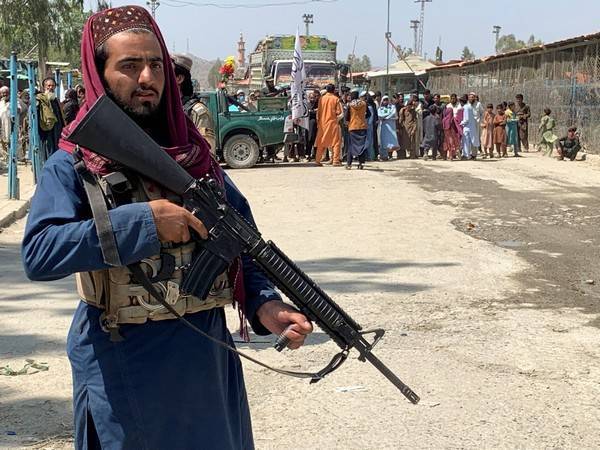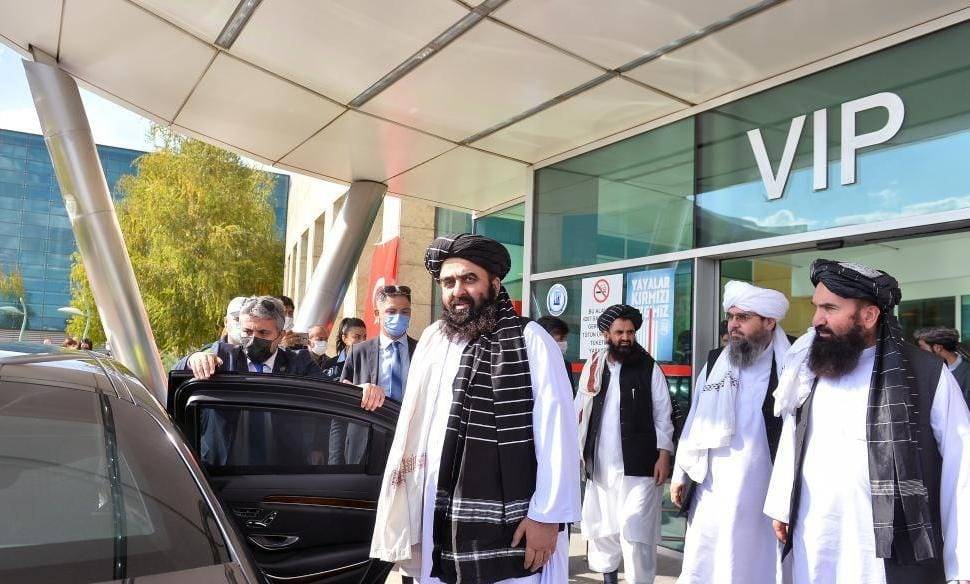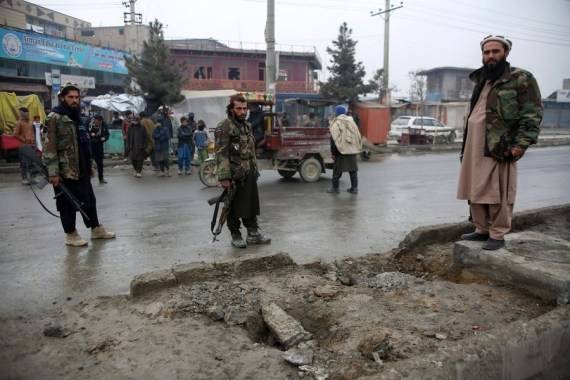The devastating attacks further increase doubt that the Taliban can protect the Afghan people, especially minorities, from violence and terror
With a spate of attacks in minority-dominated areas of Afghanistan in recent weeks, the assurances that the Taliban regime gave to the world after the takeover of Kabul in August last year seem to be falling apart, a media report said.
The series of attacks in the last few days all over Afghanistan killed at least 77 people, including children, the Frontier Post reported.
The devastating attacks are further destabilizing a nation already in economic free fall and further increase doubt that the Taliban can protect the Afghan people — especially minorities — from violence and terror, the report said.
The attacks started last Tuesday, with double bombings at the Abdul Rahim Shaheed High School and in the vicinity of the Mumtaz Education Center, both in the capital Kabul, the report said, adding that there were at least six deaths and 17 injuries at the Abdul Rahim Shaheed High School in the predominantly Shia and Hazara Dasht-e-Barchi neighbourhood.
Attacks continued, with a bombing at a Shia mosque in Mazar-e-Sharif, in northern Afghanistan that was claimed by the Islamic State-Khorasan (ISIS-K). The attack killed at least 31 people and injured many more, the report said citing Washington Post.
ISIS-K said that the bomb was in a bag that was left in the mosque; it exploded when the mosque was filled with worshippers.
“When the mosque was filled with prayers, the explosives were detonated remotely,” the ISIS-K statement claimed, also alleging that 100 worshippers were injured.
Around the same time, ISIS-K attacked a bus in Kunduz province, killing four and injuring 18, the report said.
This week’s attacks indicate that the Taliban either doesn’t have as much control over the security situation in Afghanistan as the leadership had indicated it would after US and NATO forces left the country in August, or isn’t particularly interested in providing protection to minorities, the report said.

It doesn’t help matters that the country is facing destabilization wrought by economic sanctions against Taliban leaders, coupled with the Taliban’s persecution of women, journalists, human rights workers, and other groups, the report further said.
The Taliban has a history of targeting Afghanistan’s Shias, however, the group agreed in the lead-up to its takeover that minorities would be protected under a new Taliban government.
The Hazara, an ethnic minority group that mostly practices Shia Islam, has been historically marginalized, with few opportunities for education or employment. They are Afghanistan’s third-largest ethnic group, behind Pashtuns and Tajiks.
While the Taliban has said it would not interfere with Shia worship and will protect all ethnic groups, the group is responsible for the deaths of dozens of Hazara over the past eight months, as well as mass forced displacements of Hazara people, the report said.
“When the Taliban are pushed on issues of rights and economic well-being of the Afghan people, they push back by touting their ability to provide security for all Afghans, including minorities,” Asfandyar Mir, a senior expert at the US Institute of Peace was quoted as saying.
“Yet under the Taliban, vulnerable minorities — in particular the Hazara — continue to be one of the main targets of violence. This is a source of enormous insecurity and raises questions about the Taliban’s ability to provide security in general and against minorities in particular,” Mir further said.
If the point is to use terror to create further instability, chaos, doubt, and violence to delegitimize the Taliban government, the attacks on civilians this past week could certainly have that effect — whether or not they were all perpetrated by ISIS-K, the report concluded.

US special envoy discusses recent attacks
The United States Special Representative for Afghanistan Thomas West met Swedish officials Niclas Kvarnstron and discussed the recent attacks on civilians in the troubled country.
“Met Niclas Kvarnstrom, Andreas von Uexkull & their colleagues yesterday to discuss the humanitarian response, rights of all Afghans, recent attacks on civilians, & the economic situation in detail. Grateful for Sweden’s partnership, expertise, & robust commitment to the Afghan people,” West tweeted.
Recently, the United Nations Children’s Fund (UNICEF) had expressed concerns over the series of attacks that led to the deaths of over 50 boys and girls, calling it a “grave rights violation” in Afghanistan.
“In one week alone, more than 50 girls and boys have lost their lives in a series of heinous grave rights violations in Afghanistan,” Paloma Escudero, UNICEF Director for Global Communication and Advocacy, was quoted by Tolo News as saying.
The UN agency also highlighted the delay in reopening of schools for girl students in Afghanistan saying, “It’s been one month since Afghanistan’s de facto authorities barred teenage girls from returning to school.”The Taliban regime in Afghanistan had barred girls from attending school over grade six after issuing a decree last month.
Meanwhile, the Taliban’s Ministry of Education said that the schools for girls in grades 7-12 will be reopened in the near future. (ANI)

Leave a Reply